Can Ginseng Help Lower Blood Pressure Efficiently?
Ginseng And Blood Pressure
Welcome to our deep dive into the fascinating world of ginseng and its impact on blood pressure. Whether you’ve stumbled upon this post out of curiosity, health concerns, or simply because you’re on the lookout for natural remedies, we’re here to shed light on this ancient herb and its modern-day implications. The question remains can ginseng lower blood pressure? So, grab your favorite cup of tea (ginseng, perhaps?), and let’s embark on this journey together.
Understanding Blood Pressure and Herbal Remedies
Blood pressure is like the unsung hero of our body, quietly working away to keep us alive and kicking. But when it gets out of whack, it can lead to a host of problems. Herbal remedies, with their rich history, have often come to the rescue. Let’s get to the bottom of how an age-old remedy like ginseng fits into this picture.
The Basics of Blood Pressure: What It Is and Why It Matters
Blood pressure is the force exerted by your blood against the walls of your arteries. It plays a pivotal role in ensuring that all parts of your body get the oxygen and nutrients they need. However, when blood pressure levels soar or plummet, trouble isn’t far behind.
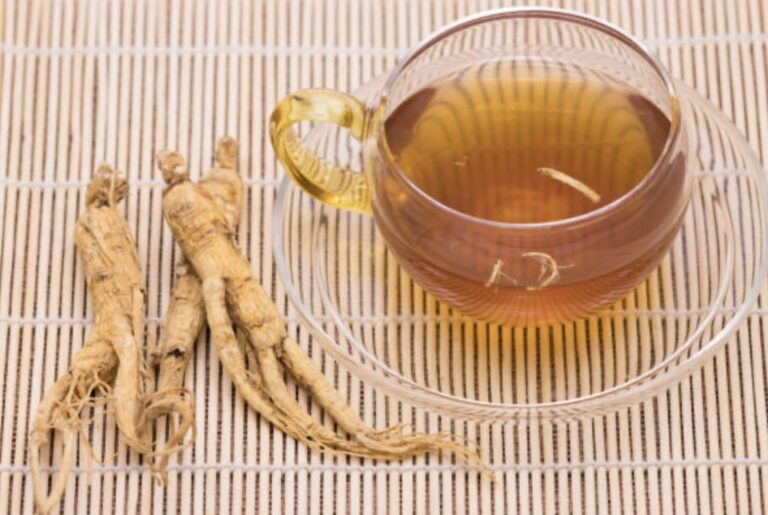
The Role of Herbal Remedies in Managing Blood Pressure: A Historical Perspective
Historically, various cultures have turned to Mother Nature’s pharmacy to treat what ails them, including issues with blood pressure. This wisdom, passed down through generations, underscores the potential of plants in maintaining our well-being.
Ginseng: An Overview of Its Historical Use and Properties
Ginseng, a root heralded for its health-promoting properties, has been a staple in traditional medicine for thousands of years. Its reputation for boosting energy levels and supporting overall health has intrigued many, sparking scientific interest in its potential benefits.
The Science Behind Ginseng and Its Effects on Blood Pressure
Recent studies suggest ginseng might have the chops to influence blood pressure. How, you ask? Let’s peel back the layers and take a closer look at what’s going on scientifically.
Active Components in Ginseng: What Makes Ginseng Special?
Ginseng houses a treasure trove of active compounds called ginsenosides. These little guys are thought to be the key players in ginseng’s health benefits, including its effect on blood pressure.
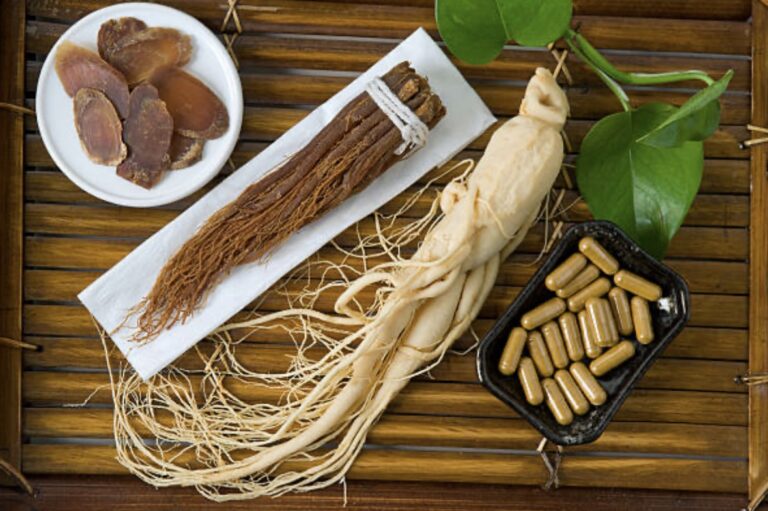
How Ginseng Affects the Cardiovascular System: A Closer Look at the Research
Ginsenosides are believed to help in widening the blood vessels, which can lead to lower blood pressure. Moreover, ginseng might also wield its magic by influencing the body’s nervous system and hormonal balances, further impacting blood pressure levels.
Comparing Types of Ginseng: Red vs. White Ginseng and Their Impact on Blood Pressure
Not all ginseng is created equal. Red ginseng, which is processed and steamed, is often hailed for its enhanced benefits compared to its white counterpart. However, when it comes to blood pressure, both varieties show promise, albeit through different pathways and mechanisms.
Ginseng in Action: Clinical Evidence and Studies
Highlighting Key Studies on Ginseng and Blood Pressure: Summarizing the Findings
Several studies have illuminated ginseng’s potential to lower blood pressure in both animal and human models. While these findings are encouraging, the scientific community continues to dig deeper to understand the full extent of ginseng’s capabilities.
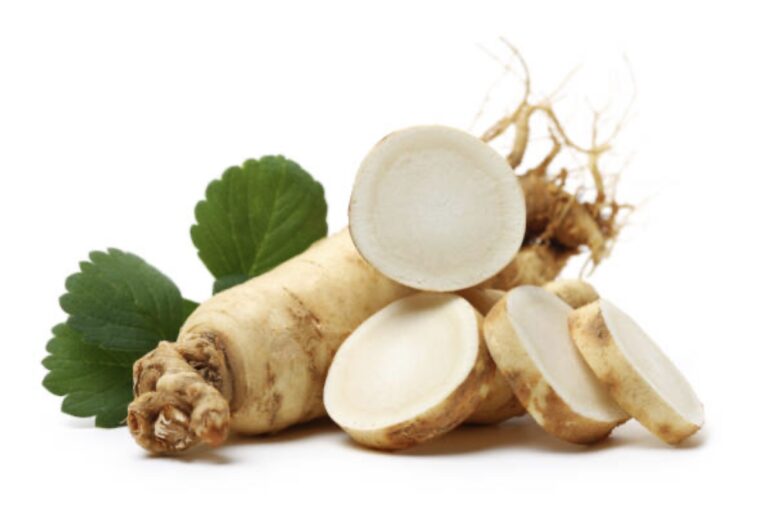
Ginseng’s Role in Hypertension Management: Analyzing Clinical Results
In the context of hypertension, or high blood pressure, ginseng has shown promising results as an adjunct treatment. Some patients report improvements in their blood pressure readings when incorporating ginseng into their management plan.
The Limitations of Current Research: What We Don’t Yet Know About Ginseng and Blood Pressure
Despite the optimistic signs, it’s crucial to acknowledge the gaps in our understanding. Most studies highlight the short-term effects of ginseng, leaving its long-term impact on blood pressure somewhat of a mystery.
Determining the Right Dosage: How Much Ginseng Should You Take?
Finding the right ginseng dosage can be a bit of a balancing act. It largely depends on the form of ginseng you’re using and your health profile. As always, moderation is key.
Potential Side Effects and Interactions: What to Watch Out For
While ginseng is generally considered safe, it can interact with certain medications and might not be suitable for everyone. Chatting with your healthcare provider before adding ginseng to your regimen is always a good idea.
Incorporating Ginseng into Your Lifestyle: Tips for Safe Use
From teas and capsules to powders, ginseng can be a versatile addition to your health toolkit. Just remember, the golden rule is to start slow and pay attention to how your body responds.

Alternative and Complementary Approaches to Blood Pressure Management
Beyond Ginseng: Other Herbs and Supplements for Blood Pressure
Ginseng isn’t the only natural player on the field. Magnesium, fish oil, and hawthorn are other supplements linked to blood pressure management. It’s a reminder of the abundance of natural resources at our disposal.
Lifestyle Changes That Can Make a Difference: Diet, Exercise, and Stress Management
Sometimes, the most powerful medicine involves lacing up your sneakers for a brisk walk or finding peace in the chaos through meditation. Diet, exercise, and stress management remain foundational pillars in managing blood pressure.
Working with Healthcare Professionals: When to Seek Advice and How to Integrate Herbal Supplements
Navigating the world of herbal supplements can be tricky. Partnering with healthcare professionals can help ensure that your approach to blood pressure management is well-rounded and safe.
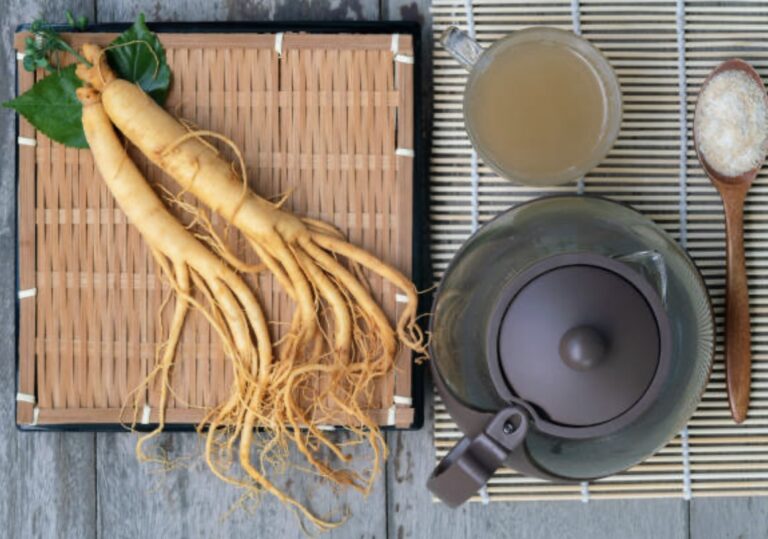
Weighing the Benefits and Risks of Ginseng for Blood Pressure
Reflecting on ginseng’s journey from an ancient remedy to a subject of scientific intrigue, it’s clear that this root holds potential in the realm of blood pressure management. However, like any intervention, it comes with its share of considerations.
Summarizing Ginseng’s Potential Impact on Blood Pressure
Ginseng, particularly in its red form, shows promise in supporting cardiovascular health and managing blood pressure. The presence of ginsenosides offers a natural pathway to potentially lower blood pressure levels, although understanding the correct dosage and long-term effects requires further research.
Navigating the Decision to Use Ginseng for Hypertension
Choosing to use ginseng as part of your hypertension management should be a well-informed decision, made in consultation with healthcare professionals. It’s about finding balance and complementing traditional treatments with natural remedies.
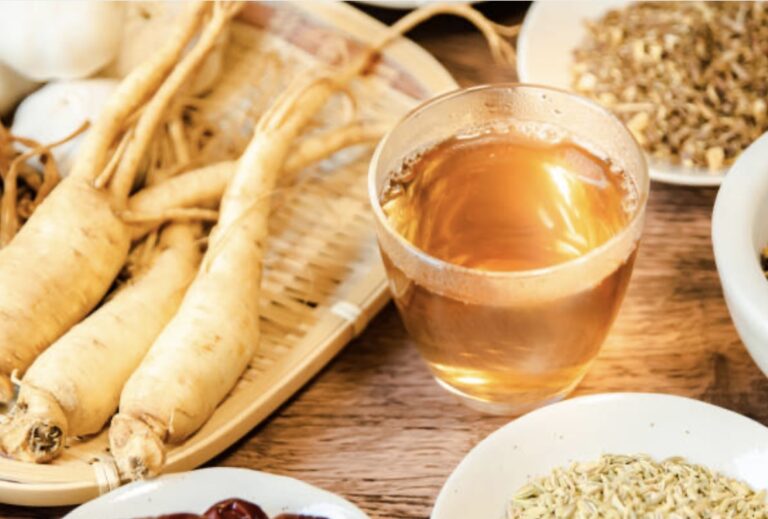
The Future of Ginseng Research and Its Role in Blood Pressure Management
The scientific community continues to peel back the layers of ginseng’s impact on blood pressure. As we learn more, the hope is to integrate this ancient remedy into modern healthcare practices, offering individuals an additional tool in their health and wellness toolkit.
Incorporating ginseng into your lifestyle for blood pressure management is akin to embarking on a new journey; it’s about exploring natural paths to wellness while navigating the landscape with care and knowledge. Whether ginseng becomes a part of your routine or you’re simply curious about its potential, it’s a testament to the enduring quest for natural and effective ways to support our health.
Frequently Asked Questions
The effects of ginseng on blood pressure may vary from person to person. Some might notice changes within a few weeks, while others may need longer to see any benefit.
Ginseng should not be viewed as a substitute for prescribed medications but rather as a complementary approach. Always consult with your healthcare provider before making any changes to your medication plan.
Pregnant women, those with immune disorders, and individuals on certain medications should exercise caution and consult with a healthcare provider before using ginseng.
Opt for ginseng from reputable sources and brands that provide transparent information about the sourcing and processing of their products.
Yes, but it’s essential to discuss this with your healthcare provider to avoid any potential interactions and ensure a holistic approach to your blood pressure management.


